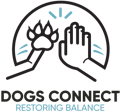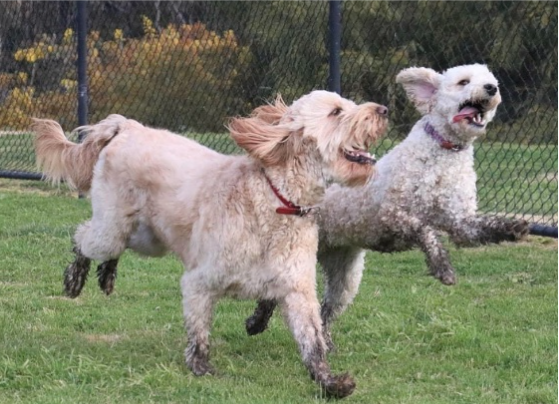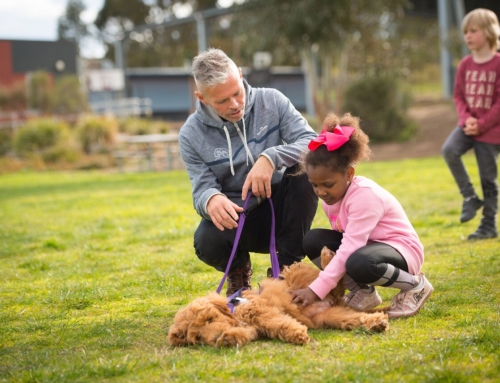As dog guardians, we hold a profound desire to ensure our dogs lead content, satisfying lives. We shower them with affection, provide top-notch nutrition, and establish safe environments. Yet, there’s a crucial element often overlooked: granting dogs choices.
In the realm of dog training and care, the concept of choice is gaining momentum. It’s grounded in respect for our pets’ autonomy and comprehension of their needs as sentient beings. Let’s delve into why granting dogs choices isn’t just beneficial but essential for their overall wellbeing.
Understanding Canine Cognition
Before exploring the significance of choice for dogs, it’s crucial to grasp their cognitive abilities. Dogs, akin to humans, possess cognitive faculties enabling them to perceive and respond to their environment. They can experience emotions, form preferences and make decisions based on their understanding of the world around them.
Studies in canine cognition underscore dogs’ capacity for intricate social interactions, problem-solving, and emotional expression. Recognising these abilities is the initial step towards acknowledging their need for autonomy.
Respecting Their Individuality
Every dog is unique, with its own personality, preferences, and idiosyncrasies. Just like humans, they have distinct likes and dislikes. By granting dogs choices, we acknowledge and respect their individuality. The Dogs Connect Program ensures there is a focus on allowing dogs to make choices that benefit their wellbeing.
Offering choices allows dogs to express their preferences and make decisions based on what feels comfortable or enjoyable for them. Whether it’s selecting a favourite toy, choosing a resting spot, or deciding when to engage in activities, granting dogs autonomy fosters a sense of empowerment and control over their environment.
Building Trust and Cooperation
Central to the human-dog bond is trust. Dogs rely on their owners for guidance, protection, and companionship. However, trust is a two-way street. By granting dogs choices, we demonstrate trust in their judgement and abilities.
When dogs feel empowered to make decisions, they become more engaged and cooperative. This mutual respect strengthens the bond between dog and owner, laying the foundation for a harmonious relationship built on trust and understanding.
Enhancing Emotional wellbeing
Just like humans, dogs can experience stress, anxiety, and frustration. These emotions can arise from various factors, including lack of stimulation, confinement, or feeling powerless in their environment.
Granting choices can mitigate these negative emotions by providing dogs with outlets for self-expression and control. Whether it’s choosing between different activities, exploring new environments, or having the option to retreat to a safe space, granting dogs autonomy promotes emotional wellbeing and reduces stress.
Fostering Positive Behaviour
One of the most significant benefits of granting dogs choices is its impact on behaviour. When dogs feel empowered to make decisions, they’re more likely to exhibit desirable behaviours.
By providing choices, owners can redirect unwanted behaviours towards more acceptable alternatives. For example, instead of forcibly removing a dog from an undesirable location, offering a choice of alternative resting spots encourages cooperation and compliance.
Practical Applications of Choice in Dog Care
Incorporating choice into daily routines doesn’t have to be complicated. Simple adjustments can make a significant difference in how dogs perceive their environment and interact with their owners. Here are some practical ways to grant dogs choices:
- Toy Selection: Allow dogs to choose from a variety of toys, letting them pick their favourites for playtime.
- Walking Routes: Offer dogs the opportunity to choose their walking route, allowing them to explore different environments and scents.
- Feeding Options: Provide dogs with options for feeding, such as puzzle feeders or interactive toys, to stimulate their minds and encourage natural foraging behaviours.
- Resting Places: Create multiple resting spots throughout the home, giving dogs the freedom to choose where they feel most comfortable. This is their ‘safe space’ and we should teach them that they can go here and will be left to rest and relax.
- Training Techniques: Utilise positive reinforcement training methods that empower dogs to make choices and learn at their own pace.
Ensuring our dogs have choices and opportunities for decision-making is important for their wellbeing and can have several benefits:
- Enrichment and Mental Stimulation: Allowing dogs to make choices provides mental stimulation and enrichment. Dogs are intelligent animals and they need opportunities to use their brains and solve problems. Having choices can engage their minds and prevent boredom.
- Reduced Stress and Anxiety: Dogs that have some control over their environment and activities tend to be less stressed and anxious. When they can make choices, they feel a sense of control, which can be particularly helpful in situations that might otherwise make them anxious.
- Improved Behaviour: Providing choices can help prevent behavioural problems. Dogs that are constantly controlled and not given choices may become frustrated or exhibit unwanted behaviours. Allowing them to make choices can reduce pent-up energy and frustration.
- Enhanced Bonding: Giving dogs choices can strengthen the bond between a dog and the Core Group. When dogs are allowed to make decisions, it fosters a sense of trust and cooperation between the dog and the people they interact with. The dog learns that the Core Group are leaders and also a partner in their activities.
- Tailored Training: Choices can be incorporated into training. By giving dogs choices within a training session, you can make the training process more engaging and effective. For example, you can allow the dog to choose which toy to fetch, which can motivate them to participate actively in training.
- Meeting Individual Needs: Different dogs have different preferences and energy levels. Allowing them to make choices can help cater to their individual needs and preferences. For example, a dog that enjoys fetching can choose to engage in that activity, while a dog that prefers sniffing during a walk can have opportunities for exploration.
- Empowerment and Confidence: When dogs are allowed to make choices and succeed in their decisions, it can boost their confidence and self-esteem. This empowerment can have a positive impact on their overall behaviour and wellbeing.
It’s important to note that while giving dogs choices is beneficial, it should be done within safe boundaries. Dogs still need guidance and supervision, especially to ensure their safety and the safety of others. Providing controlled choices that align with their training and overall wellbeing is a responsible way to offer them more autonomy in their lives.
It is crucial to recognise dogs as sentient beings deserving of respect and autonomy. Granting dogs choices isn’t merely a trend but a fundamental aspect of responsible care and companionship.
By embracing the concept of choice, we empower dogs to live fulfilling lives enriched by autonomy, trust, and emotional wellbeing. As dedicated pet owners, let’s continue to prioritise our dogs’ individuality and strive to create environments where choice and cooperation flourish. In doing so, we nurture deeper bonds and foster happier, healthier relationships with our dogs.
Dogs Connect can help you to better understand your dog and show you how to ensure your wellbeing dog has the ability to make their own choices to remain calm and content.





